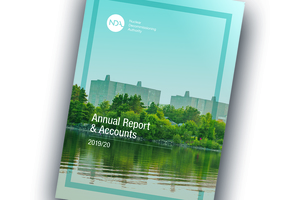Common Platform goes live in the south-east
News story
The new, digital system – designed to enable the criminal justice system to use, manage and share case information much more effectively – is now live in at criminal courts in Guildford and Staines.

The rollout of the Common Platform digital case management system continues and from today (1 March 2021) has gone live in the latest early adopter sites, Guildford Magistrates’ and Crown Courts and Staines Magistrates’ Court.
HMCTS wrote in advance to the firms and chambers of all defence professionals who work at these courts to encourage registration for accounts, so they are prepared to join hearings which use Common Platform. Initially, this will be a small number of cases with case volumes building over time. System performance will be closely monitored, making sure everything works as anticipated, before gradually increasing capacity.
Common Platform is custom-built to provide a single, streamlined digital resource which will benefit the whole criminal justice system. It improves the way cases are accessed, managed and processed and provides direct, secure access to key case information, cutting down unnecessary administration.
Kevin Sadler, Acting Chief Executive of HMCTS, said:
This is a great step forward in the rollout of this unique and innovative system. Each court which goes live with Common Platform brings us essential knowledge and feedback for us to feed into its further development. This means we can be absolutely confident this service will ultimately meet user needs and deliver significant benefits for us and for all our criminal justice partners.
Thank you to everyone who has worked so hard to help us accomplish this goal. It’s a really important achievement. Your dedication and diligence are making a real impact in the progress of our reform ambitions and the future of the administration of justice.
The rollout of the system continues later this month, and the next criminal courts due go live will be:
- North Staffordshire Justice Centre, Cannock Magistrates’ Court, Stoke-on-Trent Crown Court and Stafford Crown Court
- Warrington Magistrates’ Court and Chester Crown Court
An online tutorial video is available to support defence professionals in registering for their accounts, and the process should take around 10 minutes to complete.
Published 1 March 2021


